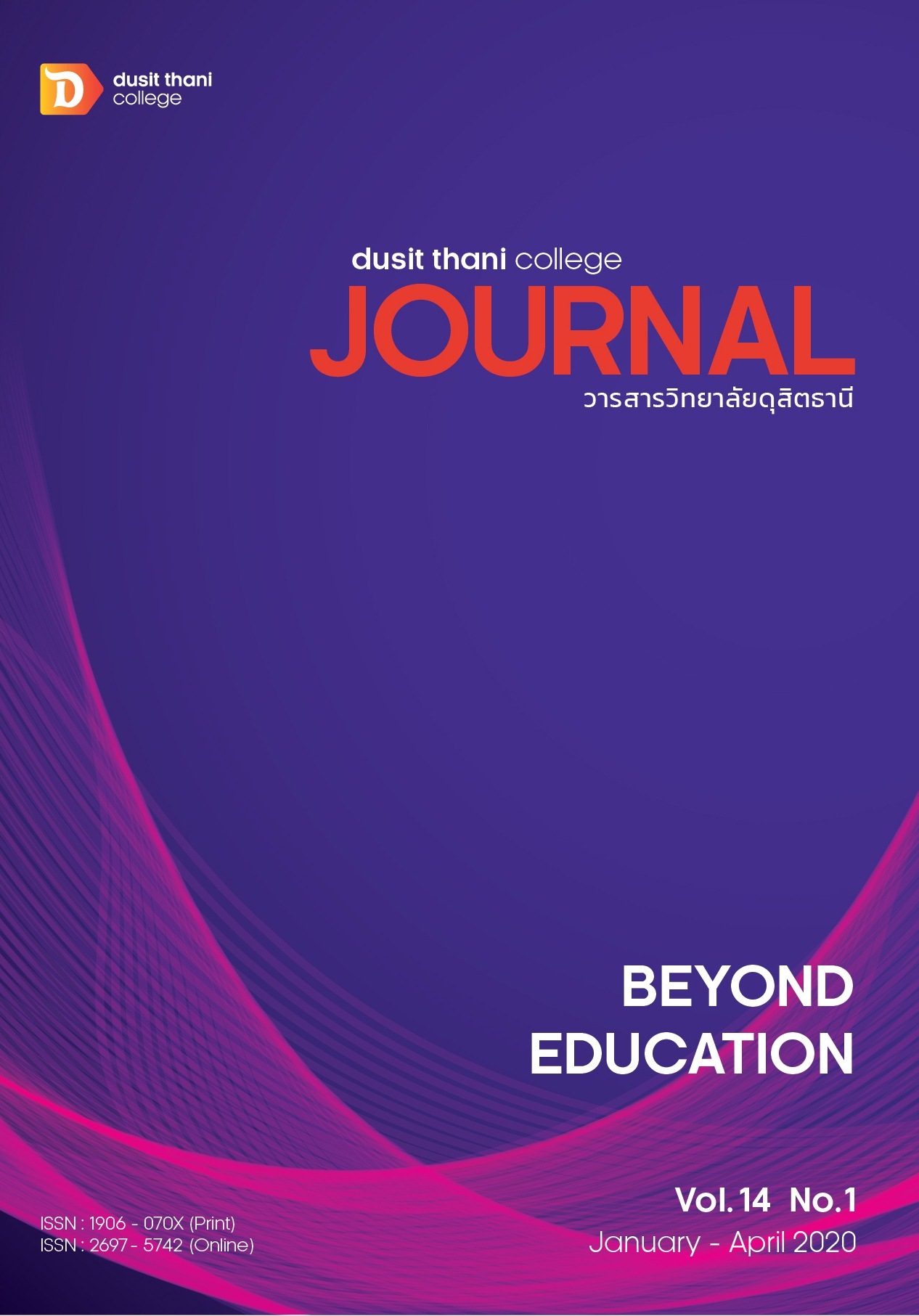Developing Halal-related Courses for Students Majoring in Culinary Arts Program in Private Institutions
Main Article Content
Abstract
The research aimed were investigate the desired characteristics of graduates for Halal-certified workplace and develop Halal related courses in the culinary arts program. Qualitative research was applied to the executives from Halal-certified workplace and experts, while the questionnaire was used with the samples who were the students majoring in Culinary Arts Program from 3 private institutions: Dusit Thani College, Ratanabandit University and Rangsit University. The findings revealed that employers in the workplace required that graduates who entered their employment at first would have impressive characteristics, being polite, tidy, respecting others, smiling, able to provide good service to satisfy their customers and create a good image for the organization which could be accepted and trusted by the customers. Therefore, the role of the institutions in improving the curriculum should be consistent with expectation of the workplace, providing appropriate teaching equipment for cooking classes based on Halal principles in Islam, creating a good learning atmosphere and having evaluations in line with the curriculum.
Article Details
Article Screening Policy
- All research and academic articles to be published must be considered and screened by three peer reviews in the relevant field / article.
- All articles, texts, illustrations and tables published in the journal are the personal opinions of the authors. Editors don't always have to agree. And no responsibility whatsoever is the sole responsibility of the author.
- The articles to be published must never be published. Where did you first publish? And not in the consideration of other journals If the audit found that there has been a duplicate publication It is the sole responsibility of the author.
- Any article that the reader sees as being plagiarized or impersonated without reference. Or mislead the work of the author Please let the journal editor know it will be your greatest blessing.
References
the arts education program at the degree level, Graduates in Thailand. Doctor's
thesis Department of Management Policy and Educational leader Department of Education Chulalongkorn University.
2. Dusit thani college. (2018). Bachelor’s Degree Study Guide. Bangkok: n.p.
3. Jeromor Jite. (2010). Buying Behavior Halal Food in Mueang District Pattani Province.
Thesis master degree in management science. Sukhothai Thammathirat Open University.
4. Niti Nawarat. How many Muslim in the world. (2017). Retrieved from https://www.thairath.co.th/content/300684. (online). Access Date 9 March 2018.
5. Office of Planning and Development. (1998). The vision of teachers and educators in the Western Rajabhat Institute Further education According to the mission of
the Act Rajabhat Institute. Nakhon Pathom: Nakhon Pathom Rajabhat Institute.
6. Parichat Hadjiusou. (2000). The competitiveness of Thai industry Case study of Halal
food. Master of Economics Business Economics Program Graduate, National Institute
of Development Administration.
7. Pornprapa Sangsincharoenchai. (1999). Assessment of the Diploma Program Finance Program (Revised version) 2536 B.E. of the Rajamangala Institute of Technology. Degree thesis Master of Education Higher Education Program Srinakharinwirot University Prasarnmit.
8. The Central Islamic Council of Thailand. (2007) .Seminar Halal Food Entrepreneurs in Thailand: Thailand Halal Food Standard. Bangkok: The Central Islamic Council of Thailand.
9. The Halal Science Center Chulalongkorn University. (2010). Management System for Halal Operation. Bangkok: Chulalongkorn University.
10. Yosit Alharbi. (2015). Halal Food Certification Regulations Standards Practices in the
Netherlands. Wageningen University and Research Center.


